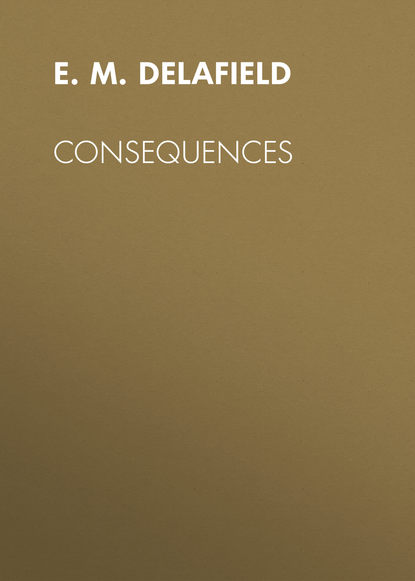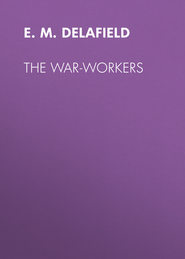По всем вопросам обращайтесь на: info@litportal.ru
(©) 2003-2024.
✖
Consequences
Настройки чтения
Размер шрифта
Высота строк
Поля
"Downshire Hill," said Alex. "No. 101."
"Downshire 'Ill? Where's that?"
"I don't know," said Alex, frightened. She wondered if the man was drunk, and prepared to pull her bag out of the cab again.
"'Alf a minute."
He called out something unintelligible to another driver, and received an answer.
"Downshire 'Ill's N.W.," he then informed her. "Out 'Ampstead w'y."
"Yes," said Alex. "Can't you take me there?"
He looked at her shabby clothes and white, frightened face.
"I'd like to see my fare, first, if you please," he said insolently.
Alex was too much afraid of his making a scene to refuse.
"How much will it be?"
"Seven and sixpence, Miss."
She pulled two half-crowns out of her purse. It was all she had left.
"This is all the change I have," she told him in a shaking voice. "They will pay the rest when I get there."
He muttered something dissatisfied, but put the coins into his pocket.
Alex climbed into the cab.
It jolted away very slowly.
The rain was falling fast, and dashing against the windows of the cab. Alex glanced out, but the streets through which they were driving were all unfamiliar to her. It seemed a very long way to Downshire Hill.
She began to wonder very much how Barbara would receive her, and how she could make clear to her the long, restless agony that had led her to obtain release from her vows. Would Barbara understand?
Letters had been very inadequate, and although Barbara had written that Alex had better come to her for a while if she meant to return to England, she had given no hint of any deeper comprehension.
"We must make plans when we meet," she had written at the end of the letter.
Alex wondered with a sense of apprehension what those plans would be. She had for so long become accustomed to being treated as a chattel, without volition of her own, that it did not occur to her that she would have any hand in forming her future life.
Presently she became conscious that the rain had stopped, and that the atmosphere was lighter. She let down the glass of the window nearest her, and saw, with surprise, that there was a rolling expanse of green, with a number of willow-trees, on one side of the road. It did not look like London.
Then the cab turned a corner, and Alex saw "Downshire Hill" on a small board against the wall.
This was where Barbara lived, then.
The little houses were small and compact, but of agreeably varying height and shape, with a tiny enclosure of green in front of each, protected by railings and a little gate. No. 101, before which the cab drew up, had a bush that Alex thought must be lilac, and was covered with ivy. There were red blinds to the windows.
She got out, pulling her heavy bag after her, and timidly pushed open the little gate, glancing up at the windows as she did so.
There was no one to be seen.
Still clutching at her suit-case, Alex pulled the bell faintly.
"There's half my fare owing yet," said the cabman gruffly.
Thus reminded, Alex rang again.
An elderly parlour-maid with iron-grey hair and a hard face opened the door.
"Is – is Mrs. MacAllister at home?" faltered Alex.
"I'll inquire," said the maid, with a lightning glance at the suit-case.
She left the door open, and Alex saw a little flight of stairs. A murmured colloquy took place at the top, and then Barbara, slight and severely black-clad, came down.
"Alex, that's not you?"
"Yes. Oh, Barbara!"
"My dear – I've been expecting to hear from you every day! I've been imagining all sorts of awful things. Why didn't you wire? Do come in – you must be dead, and have you been carrying that huge bag?"
"I came from the station in a cab."
"A cab!" echoed Barbara in rather a dismayed voice. "What a long way to come, when you could have done it so easily by the underground railway but I suppose you didn't know?"
"No," repeated Alex blankly. "I didn't know."
"What's he waiting for? Will he carry your trunk upstairs?"
"That is all the luggage I have, and I can carry it up quite well, and it isn't heavy. But I hadn't quite enough money for the fare – he ought to have another half-crown."
"Oh, dear," said Barbara. "Wait a minute, then, Alex."
She disappeared up the stairs, leaving Alex alone with the severe parlour-maid, who still held open the front door.
She leant against the wall in the tiny passage, wondering what she had expected of her actual arrival, that the reality should give her such a sense of misery.
If only she had telegraphed to Barbara from Folkestone!
"Here's two shillings. Ada, have you got a sixpence, by any chance?"
"There's sixpence in the kitchen, 'm," said Ada, and fetched it.
"There!" said Barbara. "Pay him then, please, Ada. Now, Alex, come upstairs and sit down. You look dreadfully ill and worn-out, my dear."
"Downshire 'Ill? Where's that?"
"I don't know," said Alex, frightened. She wondered if the man was drunk, and prepared to pull her bag out of the cab again.
"'Alf a minute."
He called out something unintelligible to another driver, and received an answer.
"Downshire 'Ill's N.W.," he then informed her. "Out 'Ampstead w'y."
"Yes," said Alex. "Can't you take me there?"
He looked at her shabby clothes and white, frightened face.
"I'd like to see my fare, first, if you please," he said insolently.
Alex was too much afraid of his making a scene to refuse.
"How much will it be?"
"Seven and sixpence, Miss."
She pulled two half-crowns out of her purse. It was all she had left.
"This is all the change I have," she told him in a shaking voice. "They will pay the rest when I get there."
He muttered something dissatisfied, but put the coins into his pocket.
Alex climbed into the cab.
It jolted away very slowly.
The rain was falling fast, and dashing against the windows of the cab. Alex glanced out, but the streets through which they were driving were all unfamiliar to her. It seemed a very long way to Downshire Hill.
She began to wonder very much how Barbara would receive her, and how she could make clear to her the long, restless agony that had led her to obtain release from her vows. Would Barbara understand?
Letters had been very inadequate, and although Barbara had written that Alex had better come to her for a while if she meant to return to England, she had given no hint of any deeper comprehension.
"We must make plans when we meet," she had written at the end of the letter.
Alex wondered with a sense of apprehension what those plans would be. She had for so long become accustomed to being treated as a chattel, without volition of her own, that it did not occur to her that she would have any hand in forming her future life.
Presently she became conscious that the rain had stopped, and that the atmosphere was lighter. She let down the glass of the window nearest her, and saw, with surprise, that there was a rolling expanse of green, with a number of willow-trees, on one side of the road. It did not look like London.
Then the cab turned a corner, and Alex saw "Downshire Hill" on a small board against the wall.
This was where Barbara lived, then.
The little houses were small and compact, but of agreeably varying height and shape, with a tiny enclosure of green in front of each, protected by railings and a little gate. No. 101, before which the cab drew up, had a bush that Alex thought must be lilac, and was covered with ivy. There were red blinds to the windows.
She got out, pulling her heavy bag after her, and timidly pushed open the little gate, glancing up at the windows as she did so.
There was no one to be seen.
Still clutching at her suit-case, Alex pulled the bell faintly.
"There's half my fare owing yet," said the cabman gruffly.
Thus reminded, Alex rang again.
An elderly parlour-maid with iron-grey hair and a hard face opened the door.
"Is – is Mrs. MacAllister at home?" faltered Alex.
"I'll inquire," said the maid, with a lightning glance at the suit-case.
She left the door open, and Alex saw a little flight of stairs. A murmured colloquy took place at the top, and then Barbara, slight and severely black-clad, came down.
"Alex, that's not you?"
"Yes. Oh, Barbara!"
"My dear – I've been expecting to hear from you every day! I've been imagining all sorts of awful things. Why didn't you wire? Do come in – you must be dead, and have you been carrying that huge bag?"
"I came from the station in a cab."
"A cab!" echoed Barbara in rather a dismayed voice. "What a long way to come, when you could have done it so easily by the underground railway but I suppose you didn't know?"
"No," repeated Alex blankly. "I didn't know."
"What's he waiting for? Will he carry your trunk upstairs?"
"That is all the luggage I have, and I can carry it up quite well, and it isn't heavy. But I hadn't quite enough money for the fare – he ought to have another half-crown."
"Oh, dear," said Barbara. "Wait a minute, then, Alex."
She disappeared up the stairs, leaving Alex alone with the severe parlour-maid, who still held open the front door.
She leant against the wall in the tiny passage, wondering what she had expected of her actual arrival, that the reality should give her such a sense of misery.
If only she had telegraphed to Barbara from Folkestone!
"Here's two shillings. Ada, have you got a sixpence, by any chance?"
"There's sixpence in the kitchen, 'm," said Ada, and fetched it.
"There!" said Barbara. "Pay him then, please, Ada. Now, Alex, come upstairs and sit down. You look dreadfully ill and worn-out, my dear."






